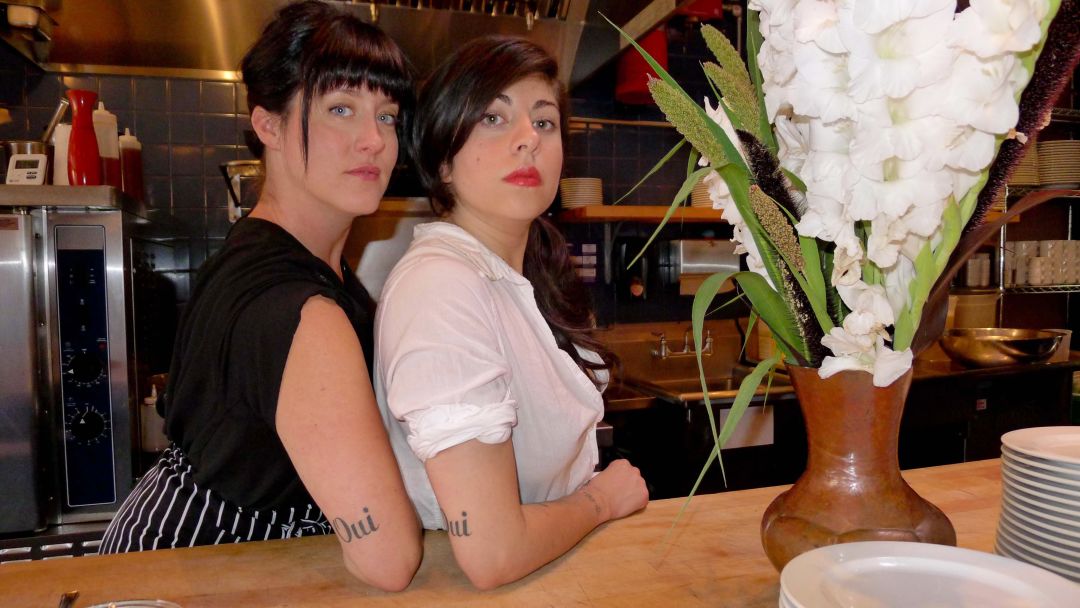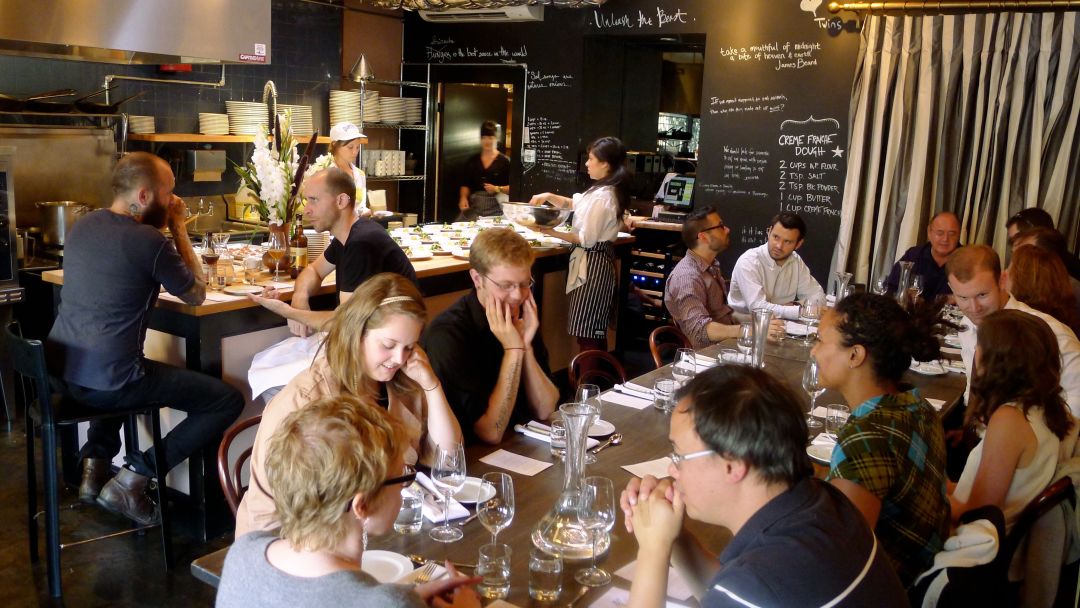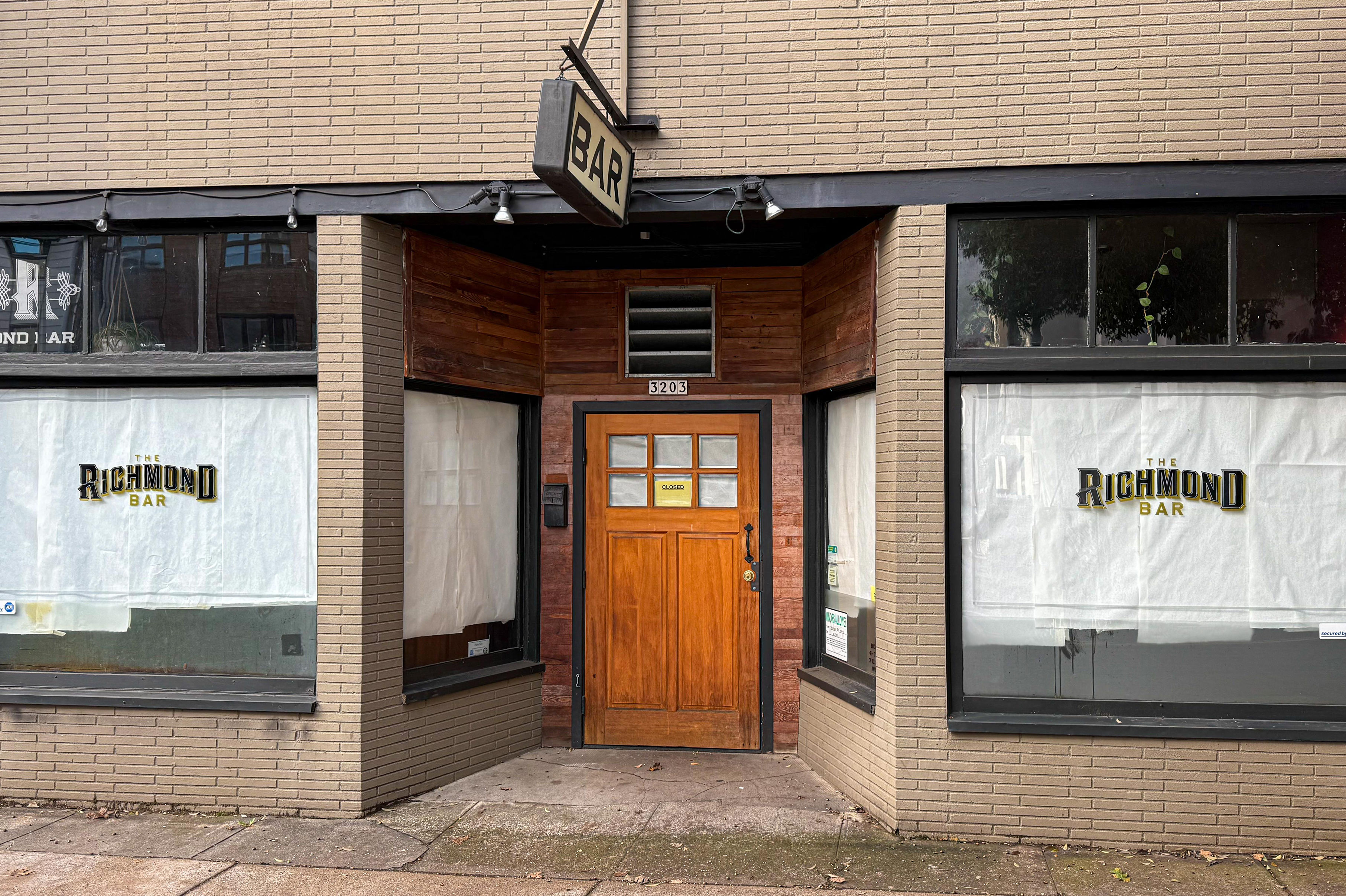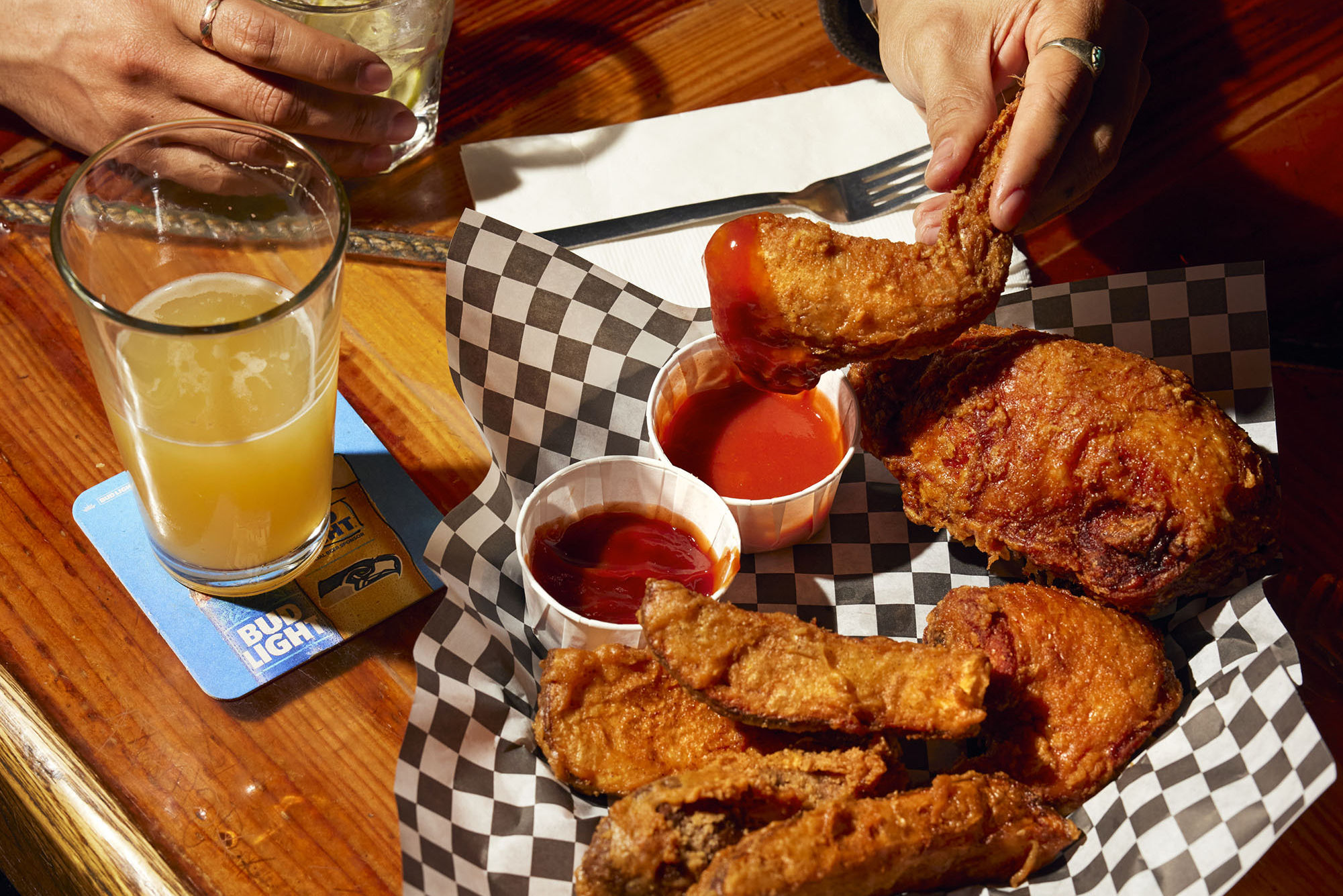"We're Not Backing Down."

Naomi Pomeroy, at left, and Mika Paredes, during the early days at Beast.
She's had major triumphs and failures. Over the past two decades, self-taught chef Naomi Pomeroy helped pioneer America's DIY dining movement, survived Portland's most public restaurant group and marriage meltdown, opened Beast, one of the city's most iconic restaurants, and won a James Beard award.

With its communal tables, Pomeroy made the decision to shutter Beast early in the pandemic.
So when the pandemic hit hard last spring, the poster girl of Portland's indie food scene was not about to sit on the sidelines. Seeing the writing on the wall (two communal tables in a no-contact world), she put Beast out to pasture in March, announcing: “I'm collecting unemployment.” Within weeks, Pomeroy emerged as a founding member of the Independent Restaurant Coalition, working with some of the country's most distinguished chefs to give voice to an industry utterly uprooted by the shutdown. Since then, the IRC has worked tirelessly to articulate what these losses mean to local economies and cultures. The group helped inspire the $120 billion RESTAURANTS Act, a critical lifeline passed by the House, but still awaiting Senate approval.
In November, Pomeroy reinvented herself again, transforming the Beast space on NE 30th into The Ripe Collective, a new-world market with restaurant-quality grab-and-go dishes and meal kits. As the year ends, she shares her parting thoughts on the future of independent restaurants.
Karen Brooks: The Independent Restaurant Coalition gets a lot of media attention. But is it accomplishing anything?
Naomi Pomeroy: Absolutely. It may not seem like that. Restaurants did not get special attention in the new stimulus bill. That was disappointing. But we did have victories. The industry's PPP (payroll protection program) is larger this time around, with more access for smaller and minority-owned businesses—a direct result of our advocacy. It's baby steps. We have support in the House and Senate, but our chances of being heard in a new administration are much higher. The IRC is doing a ton of work in Georgia. We're busier than ever. I'm on the phone four mornings a week. We're not backing down.
KB: Kentucky chef Edward Lee told Bon Appetit “the era of independent restaurants is over.” Do you agree?
NP: I'd be surprised if this is literally the end. We've been dealt an enormous gut punch, but people are going to adapt. Still, this is the tip of the iceberg. January, February, March are traditionally the slow months of the year. Some places hanging by a thread now are going to say, 'I can't do this any longer.'
KB: Would you ever open another independent restaurant?
NP: I'd never say never. You can fix things like pay equality. You can change structural things. But the question is: Are diners willing to pay the price? That's the whole crux of it. Things have been massively discounted here. Portland is a city of sticker shock. 'OMG, $12 for a burrito.' If it's affordable, something is getting sacrificed—quality of ingredients or someone's quality of life.
KB: What's next for independent restaurants? Will fine dining ever return?
NP: Tasting menus? I don't know. It's going to be something else, something we haven't totally seen yet. There's only so many donut shops a city can support.



